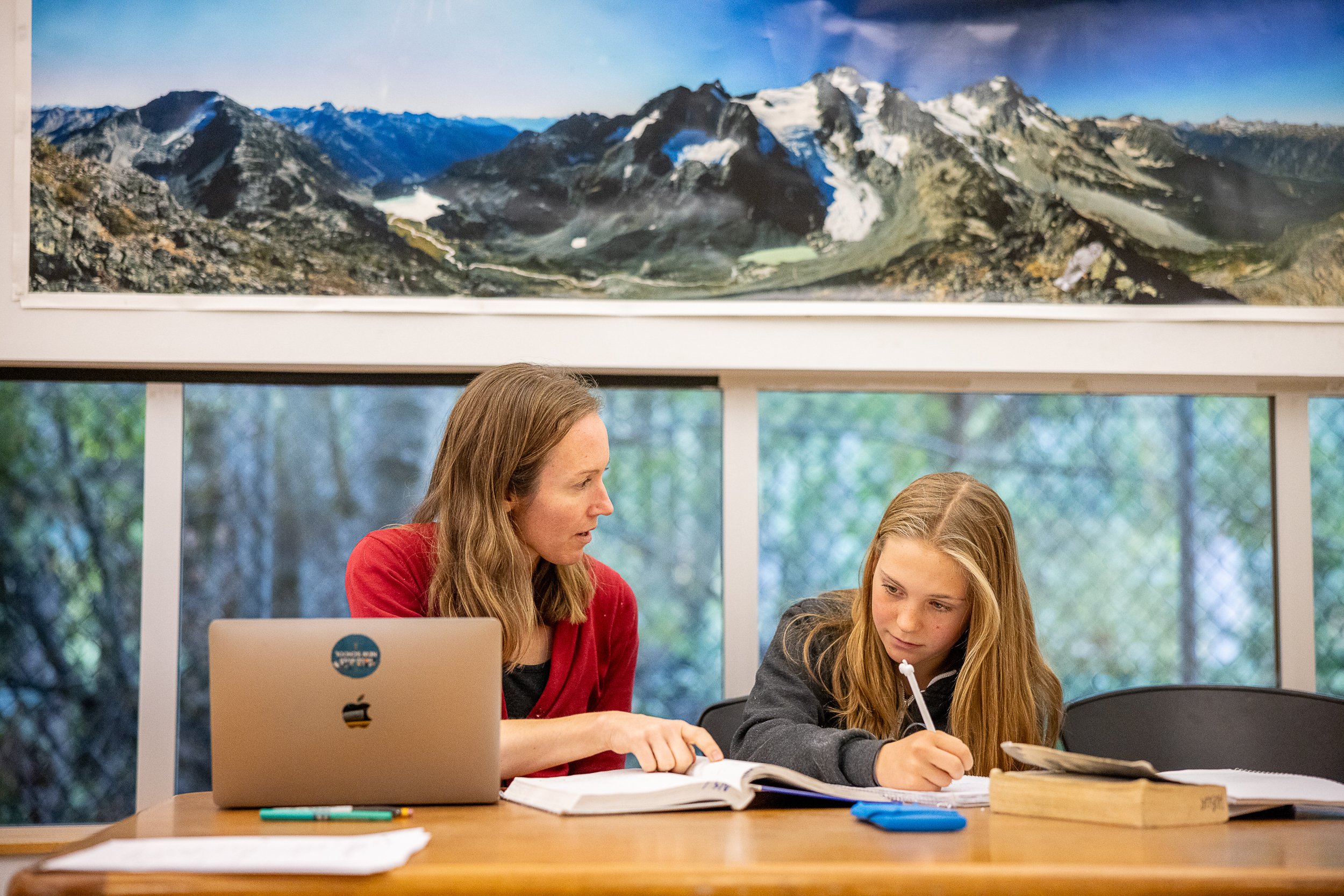
The Core Classroom: Science, Social Studies, and Language Arts.
What is Core Class?
The New School academic program is grounded in the Oregon State curriculum for grades 6-8. Many of the individual content and skill outcomes in this curriculum can be woven together in meaningful and stimulating ways. To that end, students spend about two hours each day in Core Class: a multi-age, interdisciplinary course that blends Science, Social Studies, and Language Arts.
New School follows a project-based curriculum, and student agency and independence are built through explicit teaching and practice of executive function skills. Students are given motivating, real-world projects that blend multiple disciplines and are fully supported to break down the project into a series of steps, set deadlines, prioritize, and work to achieve their goals. Teachers support this through explicitly teaching the necessary skillset, as well as providing multiple avenues of support along the way as needed.
More About Core Class
Students stay with the same core teacher and cohort for their three years at New School. Core classes are taught by highly experienced and certified middle school teachers, who are very familiar with the Oregon State curriculum and project-based learning. Each day, students dive deeply into a topic, with a mixture of inquiry-based learning and direct instruction.
We have a low teacher-to-student ratio, and teachers build a long-lasting three-year relationship with their students, allowing them to deeply understand a student’s learning style and challenges, and design the right level of support to enable the student to grow and gain ownership over the learning process. This set of executive function and leadership skills is highly transferable to high school and beyond.
Although this project-based curriculum has been locally developed over about a decade, a wealth of state and Common Core aligned resources are used to ensure a smooth transition beyond New School. These resources include the CK12 Foundation (Common Core aligned science), Discovery Education (History), the Teachers College Reading and Writing Program from Columbia University, and Generation Genius. We also use many other multimedia resources to support our units, such as the PBS Ad and Media Literacy content, “Guns, Germs and Steel”, and the National Energy Education Development Project materials.
Beyond projects, students are given ample opportunities to show their learning in other ways, including multiple-choice tests, grammar worksheets, and spelling tests. We want to ensure that students are well-equipped to understand how to be successful in a wide range of evaluation styles.
An Example of a Core Curriculum Unit of Study
When students learn about volcanoes, they travel to Mt. St. Helens for 3 days of exploration and follow that with a textbook and lecture learning about the earth science principles that underlie the volcanic processes. Then, students find a person in their community who remembers the eruption and conduct a formal interview, learning both interview techniques, and how to write an interview summary. Finally, students become stakeholders in an interactive simulation in which Mt Hood is in danger of erupting, and they must use all the knowledge they’ve gained to decide on an action plan.
Foundations
In addition to Core Class, all students attend Foundations. A stand-alone course to promote metacognitive strategies as well as focus on 21st century skills. Students spend an hour a day, often in small groups, focusing on understanding themselves better as a learner (test preparation, vocabulary acquisition skills, etc) as well as completing units on important skills that support our interdisciplinary core classes such as keyboarding, resume building, editing, grammar, and speaking skills. During Foundations classes, students are taught about all aspects of health, including social and emotional health as part of the curriculum.
Click the image above to watch the video that 8th-grade students Beckett, Judah, and Jack created as their capstone project in the spring of 2024.


